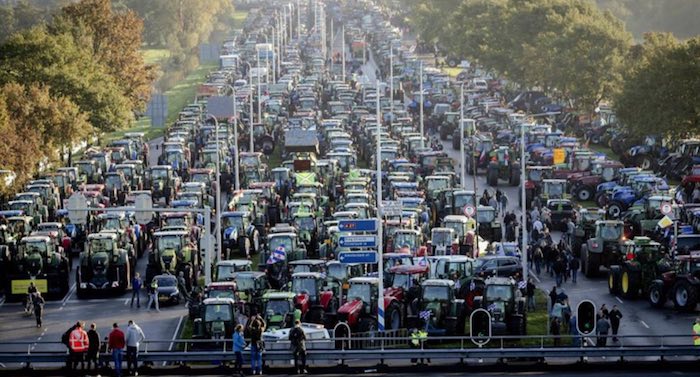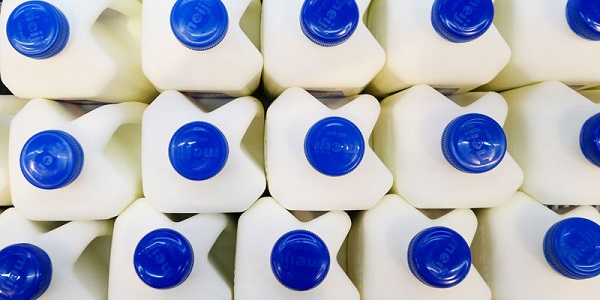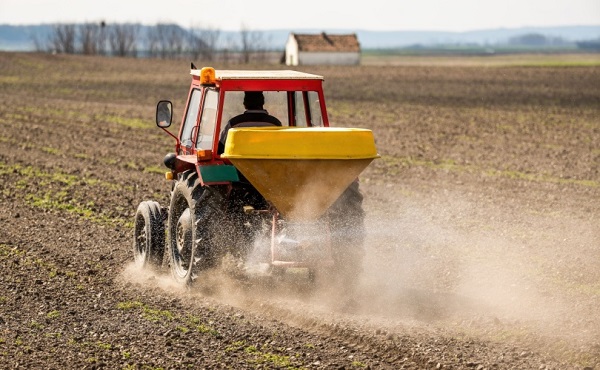By TRACY THURMAN
After the lockdowns of 2020 and the vaccine mandates of 2021, most Americans have heard about the idea of medical freedom and many have concerns about informed consent. One in four of our countrymen say they know someone who was seriously injured or killed by the Covid vaccines. The need for informed consent in medicine is apparent. But far fewer know anything about food freedom, or why it matters.
Medical freedom and food freedom are two sides of the same coin, and unless we fight to protect both, we will have neither.
Looking to the future in his 1951 book The Impact of Science on Society, the Nobel Prize-winning British mathematician, philosopher, and eugenicist Bertrand Russell forecast a future where the elites would use science as a means to control the population: “Diet, injections, and injunctions will combine, from a very early age, to produce the sort of character and the sort of beliefs that the authorities consider desirable, and any serious criticism of the powers that be will become psychologically impossible. Even if all are miserable, all will believe themselves happy, because the government will tell them that they are so.”
In The Scientific Outlook, Russell also wrote: “[In the future], [children’s] diet(s) will not be left to the caprices of parents, but will be such as the best biochemists recommend.”
While this likely sounded far-fetched to most of Russell’s contemporaries, his words capture our current era with alarming accuracy. In the past three years, millions of Americans saw their lives and livelihoods destroyed through injections and injunctions. Small businesses were decimated by the lockdowns. Legions of hard-working people faced ruin for demanding their right of informed consent – to evaluate the facts regarding any so-called medical treatment and to decide for themselves if they wanted it. They were fired for refusing the vaccine. They were killed with remdesivir. They died when doctors and bureaucrats denied them the truly safe and effective treatments they demanded, such as ivermectin.
Some of you are among the brave few who stood up in that moment and did what was right, to protect patients and vulnerable people at great cost to yourselves. I applaud you for this. You know first-hand what it means to have the boot of Injections and Injunctions on your face.
Now the third piece of the control grid Russell laid out must come into focus: diet. The battle to control you through what you eat is very real. It threatens to destroy what sovereignty we have left, and it is being perpetrated by the very same people who brought you “safe and effective injections” and “two weeks to slow the spread.”
The Covid lockdowns revealed the weakness of our overly centralized supply food chain on a global level. Government-mandated shutdowns disrupted food distribution hubs and shuttered meat processing plants, causing chaos, riots, and unrest worldwide as people scrambled to find food for their families. The situation deteriorated further when Russia invaded Ukraine, the breadbasket of Europe; numerous countries in Asia and Africa depended on Ukrainian grain for their sustenance. The decreased harvest drove up grain prices around the world, contributing to terrible food shortages for millions.
In 2023, 282 million people globally experienced high levels of acute hunger – an increase of 8.5 percent from 2022’s already elevated levels. In the United States, one in eight American households lacked adequate food in 2022, according to a report from the US Department of Agriculture.
You’d think this would be the time to support farmers around the world who are trying to feed the hungry masses, and to encourage local food systems that are resilient in the face of supply-chain disruption. Instead, in country after country, World Economic Forum-affiliated leaders are cracking down on independent farmers and forcing them to comply with draconian new rules in the name of combating climate change.
In Sri Lanka, the World Economic Forum-affiliated Prime Minister Ranil Wickremesinghe banned all chemical fertilizers in a bid to combat climate change, forcing farms to go organic overnight, something which any organic farmer will tell you is a recipe for disaster – making a change like this, even on a single farm, takes planning and time. Combined with an acute diesel shortage, this edict left farms unable to operate, leading to soaring food prices and famine. The situation became so dire that in 2022, hundreds of thousands of Sri Lankans rioted, invaded the presidential palace, and overthrew their government.
In Ireland, the agricultural sector has been ordered to cut carbon emissions by 25% in the next seven years. This requirement will drive many farms into bankruptcy and will force the culling of hundreds of thousands of cows.
In Canada, the goal is fertilizer reduction of 30%, including reductions in manure use on organic farms – the only viable alternative to chemical fertilizer. Farmers are ringing the alarm bells that this policy will devastate the food supply. Even though milk prices are hitting record levels, Canadian officials still force farmers to dump their milk if they produce more than an arbitrary quota. Dairy owners are banned from giving the milk away to neighbors or homeless shelters. In Ontario, farmers cannot sell their milk directly to consumers at all, but must sell it to a single government-approved body which then decides how it is distributed.
In the Netherlands, the government is requiring a 30% reduction in livestock and mandating cuts in nitrogen of up to 95% – nitrogen that is released from cow manure and, if used properly, is an earth-friendly fertilizer. The government also plans to seize and shut down up to 3,000 farms to meet climate objectives. Protests by Dutch farmers have been met with force, including the police firing live ammunition rounds at protesters.
Denmark, Belgium, and Germany are considering similar nitrogen reduction policies. Both the UK and US have already put schemes into place to pay farmers not to farm. In huge areas of the Midwest, large corporations are seizing prime farmland by eminent domain to install solar farms – installations that could instead be built in sunny, arid deserts where they would not disrupt the food supply.
All of this is happening at a time when we need more food and farms, not a reduction.
In the United States, there are many small, regenerative organic farms that raise pastured meats, dairy, and poultry on perennial pastures, without the use of chemical fertilizers, using animal manure to feed the grasses in a beautiful holistic cycle that is environmentally friendly and has starkly lower methane and carbon emissions compared to industrial farming. It reduces nitrogen runoff into rivers and streams and prevents erosion. If our government truly cared about climate change and human health, bureaucrats and scientists would be visiting these farms, begging to learn how to implement their methods to save the planet. Instead, these farmers are facing increased harassment and raids by armed agents seeking to shut down their operations.
You may have heard about Amos Miller, the Amish farmer from Lancaster, Pennsylvania who has been facing persecution from the CDC, FDA, and USDA for 7 years now for the unforgivable crime of providing raw milk and farm-processed, non-USDA inspected meats to customers who know what they are getting and want it exactly that way. We’ll get into why his customers want non-USDA-inspected meats later in this series. But for now, know that such raids are frequent and are threatening our ability to access local, healthy, environmentally friendly meats and dairy.
Since 2020 there has been a significant increase in the number of unexplained fires and other events damaging farms, barns, food warehouses, food pantries, and the food supply chain in general, prompting the FBI to warn that the food system is under threat from cyberattacks.
So why is this happening? Why is our food supply being disrupted, seemingly on purpose? And who is behind this global assault on our farmers?
Tracy Thurman is an advocate for regenerative farming, food sovereignty, decentralized food systems, and medical freedom. She works with the Barnes Law Firm’s public interest division to safeguard the right to purchase food directly from farmers without government interference.












